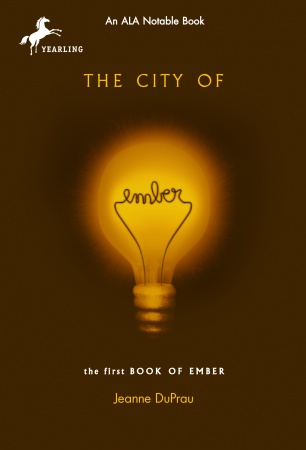Date read: 8.24.10
Book from: Borrowed from my cousin
Reviewer: Emera
In brief: ZOMBIE OUTBREAK etc. Global pandemonium ensues.
So I assumed at first that this was in novel form, and was mildly intrigued since I’d never read a novel-length zombie survival story. (ETA: Oh wait, I have: Warm Bodies.) Turns out it’s actually in the format of interviews with various survivors of “World War Z:” soldiers, community leaders, doctors, lone survivalists, a feral child, etc., brought to you by the author of The Zombie Survival Guide. Most of it is schlock, especially any part of it that aspires to any emotional or philosophical depth and the so-called “satire,” which amounts to making very obvious fun of Corrupt Politicians, Shallow American Suburban Housewives, and so on. (Also, I must salute Brooks for his incredibly creative choices in making two of the three or four total Asian characters, respectively, a blind samurai zombie-whacker and a former otaku turned “warrior monk” (barf).)
But what fun schlock it is! The interview format gives Brooks an excuse to play out as many obsessively detailed scenarios as his zombie-nerd brain can churn out, from panics fueled by the failure of a fraudulent zombie-virus vaccine, to reappropriated medieval castles under siege, to all the intricacies of anti-zombie warfare and weapon design. (Possibly my favorite section: a long interview regarding the training of military dogs to track, and sometimes lure, zombies. It tickles the part of me that insisted on using attack dogs when playing Red Alert against my brother.) There are also numerous satisfyingly suspenseful episodes and creepy moments: the narrative of an American soldier who is ejected from a damaged plane and lost, alone, in a zombie-infested forest; the realization of a submarine crew that that odd sound is the clawing of dozens of submerged zombies that have surrounded their vessel. (Brooks’ zombies survive drowning, and can re-reanimate if thawed after being frozen, which leads to the fabulously grisly image of a world with its polar regions abandoned to hordes of half-frozen zombies.)
All in all, World War Z made for some great summer reading. I suppose it’s a little late to be reporting that, but there’s always room for a little brainless (pun?) entertainment. If you’ve ever discussed zombie outbreak contingency plans with friends, you’ll likely enjoy this.
